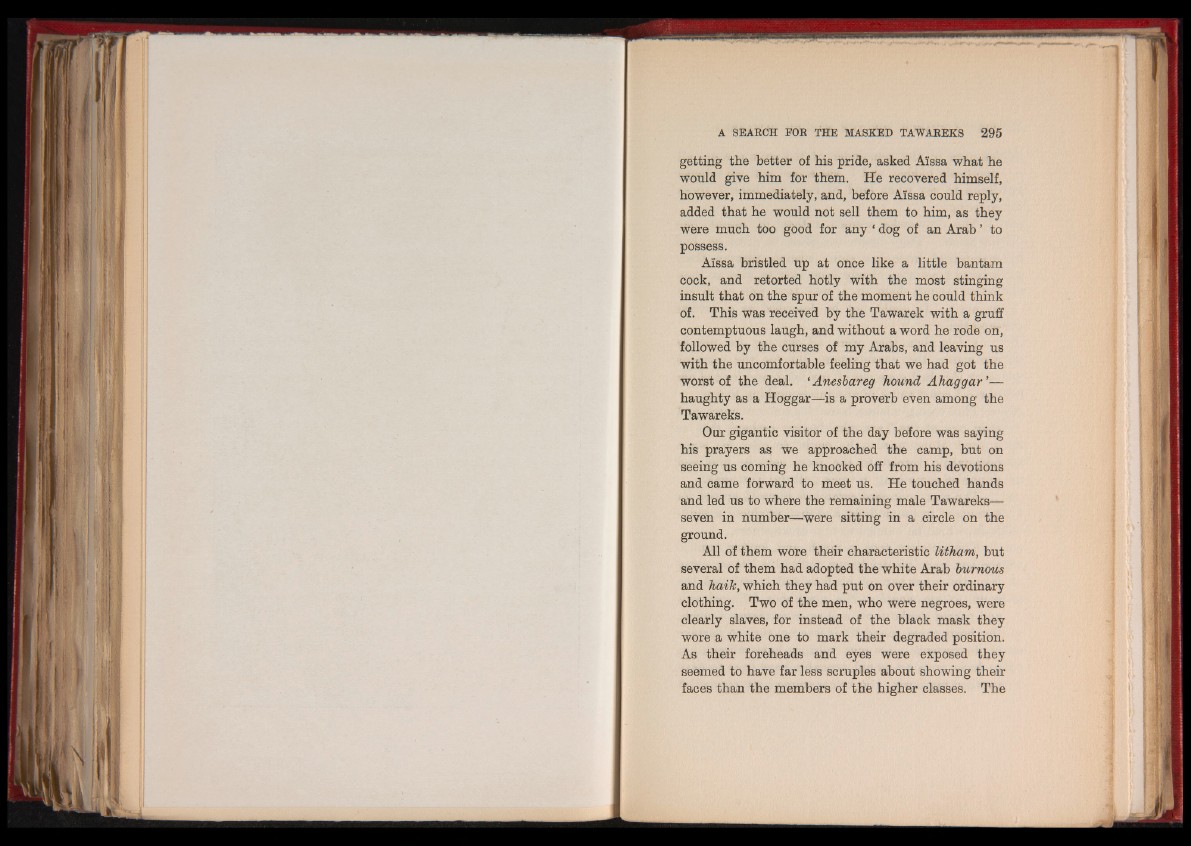
getting the better of his pride, asked Aissa what he
would give him for them. He recovered himself,
however, immediately, and, before Aissa could reply,
added that he would not sell them to him, as they
were much too good for any ‘ dog of an Arab ’ to
possess.
Aissa bristled up at once like a little bantam
cock, and retorted hotly with the most stinging
insult that on the spur of the moment he could think
of. This was received by the Tawarek with a gruff
contemptuous laugh, and without a word he rode on,
followed by the curses of my Arabs, and leaving us
with the uncomfortable feeling that we had got the
worst of the deal. ‘Anesbareg hound Ahaggar ’—
haughty as a Hoggar—is a proverb even among the
Tawareks.
Our gigantic visitor of the day before was saying
his prayers as we approached the camp, but on
seeing us coming he knocked off from his devotions
and came forward to meet us. He touched hands
and led us to where the remaining male Tawareks—
seven in number—were sitting in a circle on the
ground.
All of them wore their characteristic litham, but
several of them had adopted the white Arab burnous
and haik, which they had put on over their ordinary
clothing. Two of the men, who were negroes, were
clearly slaves, for instead of the black mask they
wore a white one to mark their degraded position.
As their foreheads and eyes were exposed they
seemed to have far less scruples about showing their
faces than the members of the higher classes. The